If you’re taking multiple medications for chronic conditions like diabetes, high blood pressure, or asthma, you might not realize there’s a free service designed to help you take them safely and effectively. It’s called Medication Therapy Management, or MTM. And it’s not just another pharmacy visit-it’s a personalized, in-depth conversation with a pharmacist who acts as your medication coach.
What Exactly Is Medication Therapy Management?
MTM is a service offered through Medicare Part D prescription drug plans. It’s not about getting your pills filled. It’s about making sure every pill you take is doing what it’s supposed to-and not causing harm. A trained pharmacist sits down with you (in person or over video call) and reviews everything you’re taking: prescriptions, over-the-counter drugs, vitamins, herbs, even supplements. They look for overlaps, side effects, and cheaper alternatives. The goal? To help you feel better, avoid hospital visits, and save money.
This isn’t optional for Medicare plans-it’s required by law. Since 2006, every Medicare Part D provider must offer MTM to eligible members. And it’s completely free. No copay. No extra fee. You just show up, or log in, and talk through your meds.
Who Qualifies for MTM Services?
You don’t need to ask for it. If you qualify, your plan will reach out. To be eligible, you typically need to meet all three of these criteria:
- You’re taking 8 or more Medicare Part D prescription medications
- You have 3 or more chronic conditions (like heart disease, COPD, depression, or kidney disease)
- Your total annual drug costs are over $4,430 (this number adjusts slightly each year)
It’s not about how old you are or how sick you are-it’s about how complex your medication list is. Even if you’re young but managing five different prescriptions for multiple conditions, you might qualify. And if you’re over 65 with a long list of meds, you’re very likely eligible.
Some plans use slightly different numbers, so check your plan’s details. But if you’re unsure, call your pharmacy or Medicare plan. Ask: “Am I eligible for Medication Therapy Management?” They’ll tell you right away.
What Happens During a Comprehensive Medication Review?
The heart of MTM is the Comprehensive Medication Review (CMR). Think of it as a full health checkup-for your pills.
During the session, which lasts about 30 to 45 minutes, your pharmacist will:
- Ask you to list every medication you take-including what you buy without a prescription
- Check for dangerous interactions (like mixing blood thinners with certain painkillers)
- Spot duplicate drugs (e.g., two different pills for the same condition)
- Find cheaper generic options that work just as well
- See if you’re taking meds you don’t really need anymore
- Help you understand why each pill matters and how to take it correctly
You’ll walk away with two key documents:
- Personal Medication Record (PMR)-a simple, updated list of everything you take, with doses and times. Keep this in your wallet or phone.
- To-Do List-action steps like “Call your doctor about dizziness,” “Switch to cheaper version of X,” or “Start using a pill organizer.”
This isn’t a lecture. It’s a conversation. You’re encouraged to ask: “Why am I taking this?” “What happens if I skip it?” “Can I take this with my tea?”
What About Follow-Ups? Targeted Medication Reviews
MTM doesn’t stop after one meeting. Every three months, your pharmacist may do a Targeted Medication Review (TMR). These are shorter-usually 10 to 15 minutes-and focus on specific issues.
For example:
- You started a new blood pressure drug and feel lightheaded
- You ran out of your diabetes meds last month and didn’t refill
- Your doctor added a new pill, and you’re not sure how it fits with the rest
The pharmacist will call you, text you, or invite you back in. They might even contact your doctor to suggest a change. Their job is to catch problems early-before you end up in the ER.
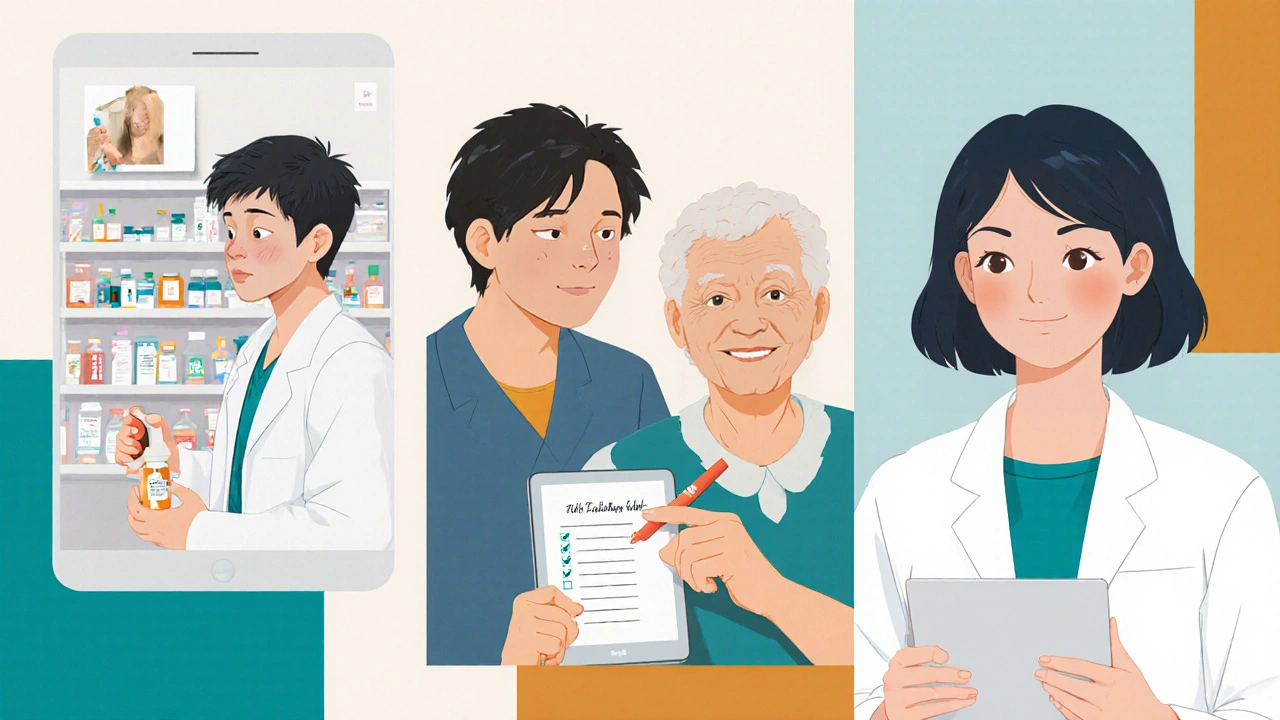
Why This Matters: Real Benefits, Real Results
Studies show MTM works. Patients who complete their reviews:
- Take their meds more consistently
- Have fewer hospital stays
- Save money on drugs-sometimes hundreds a year
- Report feeling more in control of their health
One woman in Ohio, 72, was taking 11 different pills. She didn’t know why she was on two blood pressure meds. Her pharmacist found the overlap, got one stopped, and saved her $180 a month. She said, “I felt like I was drowning in pills. Now I know what each one does.”
Another man in Florida had been taking a stomach acid pill for years. His pharmacist asked if he still had heartburn. He hadn’t in 18 months. They stopped the pill. No side effects. No return of symptoms. Just one less pill to manage.
These aren’t rare cases. They’re the norm when MTM is done right.
What If You Can’t Talk to the Pharmacist?
Some people have trouble remembering details, hearing clearly, or getting to appointments. That’s okay. You can bring a family member, caregiver, or friend. The pharmacist will talk to them instead. You can even give written permission for them to speak on your behalf.
If you’re homebound, most plans offer telehealth visits. Just need a phone or tablet. No need to leave the house.
And if your plan invites you and you don’t respond? They’ll try again. You won’t be dropped from the program. But you’ll miss out on the benefits. So if you get a letter or call-don’t ignore it.
How Is This Different From Regular Pharmacy Advice?
When you pick up your prescription, the pharmacist might say, “Take this with food.” That’s helpful. But it’s not MTM.
MTM is deeper. It’s not about one drug. It’s about all of them. It’s not about filling a script. It’s about fixing a system. Pharmacists doing MTM have special training. They look at your whole medical picture-not just your latest prescription.
They don’t just tell you what to do. They help you figure out how to make it fit into your life. Can you take your morning pills before breakfast? What if you forget? What if you’re traveling? They adapt the plan to your routine-not the other way around.

What’s Next? The Future of MTM
Right now, MTM is mostly tied to Medicare Part D. But that’s changing. States like Tennessee are already using MTM in their Medicaid programs. Private insurers are starting to offer it too.
Soon, pharmacists might be part of your regular care team-like your doctor or nurse. Imagine a single point of contact who knows every pill you take, every doctor you see, and every time you’ve been in the hospital. That’s the future.
For now, if you’re eligible, don’t wait. Call your plan. Schedule your review. Bring your pill bottles. Write down your questions. You’ve already done the hard part-managing your health. MTM is the tool that makes it easier.
Common Questions About MTM
Is Medication Therapy Management free?
Yes. MTM services are offered at no extra cost to Medicare Part D beneficiaries who qualify. There are no copays, fees, or hidden charges. It’s part of your prescription drug plan benefits.
Do I need a referral from my doctor to get MTM?
No. You don’t need a referral. If you meet the eligibility criteria, your Medicare Part D plan will contact you directly. You can also call your plan or pharmacy to ask if you qualify.
Can I get MTM if I’m not on Medicare?
Currently, MTM is required only for Medicare Part D plans. But some private insurers and Medicaid programs are starting to offer similar services. Check with your pharmacy or insurer to see if they have a medication management program.
What if I don’t want to change my medications?
MTM isn’t about forcing changes. It’s about giving you information so you can make informed choices. The pharmacist will suggest options, but you decide what to do. You can say no to any recommendation. The goal is to support your preferences, not override them.
How often do I get a medication review?
You’ll get at least one Comprehensive Medication Review (CMR) per year. You may also get up to four Targeted Medication Reviews (TMRs) each year-usually every three months-when new issues come up or follow-ups are needed.
Can my caregiver participate in my MTM session?
Yes. If you’re unable to attend or speak for yourself, your caregiver, family member, or authorized agent can join the session on your behalf. You can give written permission for them to speak with the pharmacist.
What if I’m taking non-prescription drugs or supplements?
You must tell the pharmacist about everything you take-including vitamins, herbal supplements, and over-the-counter pain relievers. These can interact with your prescriptions and cause serious side effects. The pharmacist needs the full picture to keep you safe.
Next Steps: What to Do Now
If you think you might qualify:
- Check your Medicare Part D plan’s website or call their member services. Ask: “Am I eligible for Medication Therapy Management?”
- Gather your pill bottles or a full list of everything you take-including doses and times.
- Write down any questions or concerns: “Why am I on this?” “I feel tired after taking this.” “This costs too much.”
- Wait for your plan to contact you-or reach out first. Don’t wait for them to chase you.
- Attend your session. Bring someone with you if you want.
MTM isn’t a one-time fix. It’s an ongoing partnership. The more you engage, the better your results. And the safer you stay.

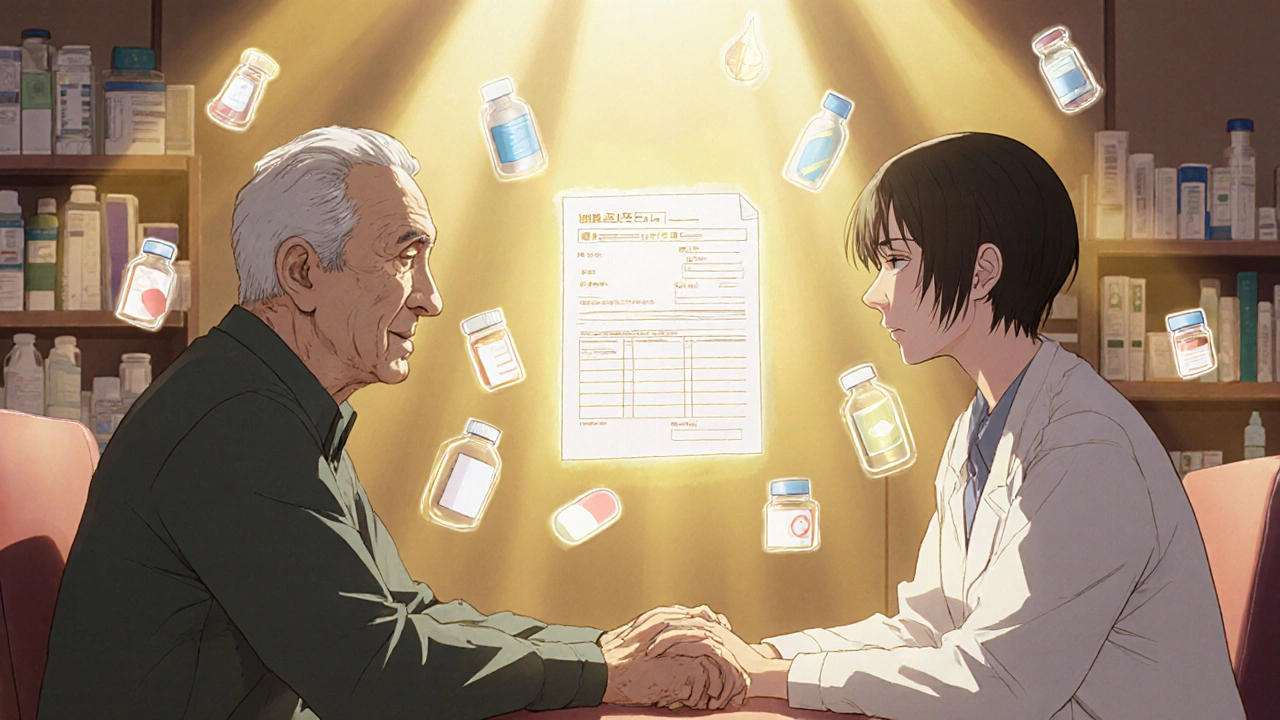


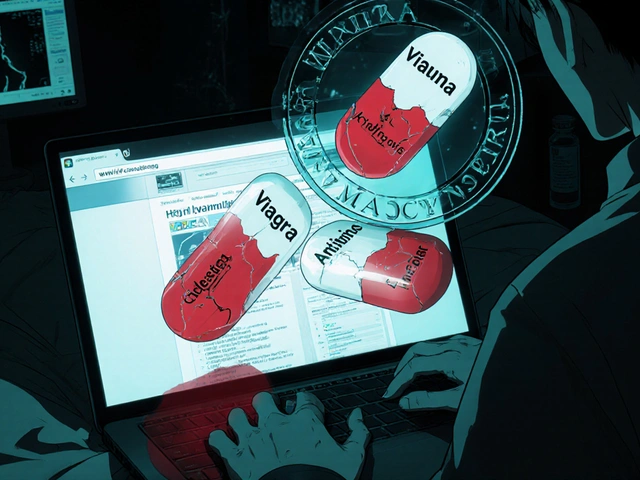
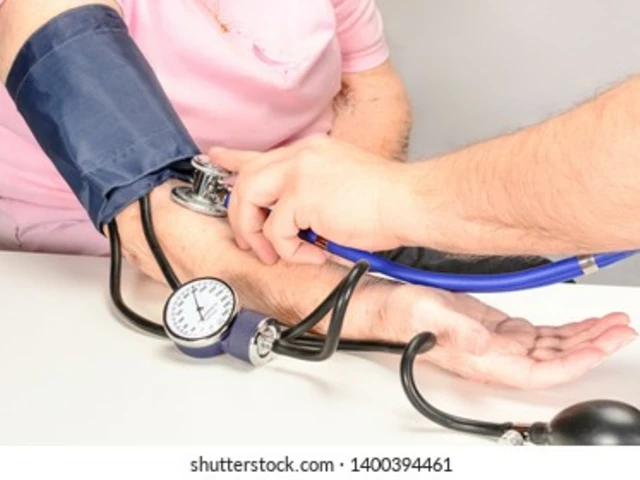
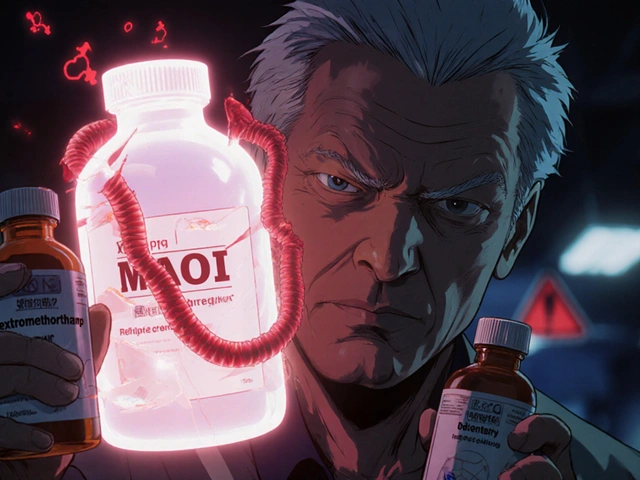
Evelyn Shaller-Auslander
November 28, 2025 AT 07:27i never knew this was free?? my grandma’s on 12 meds and she just keeps taking them all at once like a cereal bar. this could’ve saved her from that hospital trip last year. why isn’t this advertised more??
Gus Fosarolli
November 30, 2025 AT 05:47so let me get this straight - pharmacists are now your personal medication butlers? no wonder my last pharmacist looked at me like i was a walking pharmacy catalog. ‘Sir, your ibuprofen is conflicting with your fish oil and your existential dread.’
finally, someone who speaks fluent ‘why am i taking this again?’
also, i’m pretty sure my cat takes more pills than i do. she’s got a whole damn schedule.
Asbury (Ash) Taylor
November 30, 2025 AT 22:56This is an exceptionally well-structured and critically important initiative that aligns with evidence-based pharmacotherapy principles. The integration of comprehensive medication reviews into routine care delivery represents a paradigm shift in patient-centered outcomes. The reduction in polypharmacy-related adverse events is statistically significant across multiple longitudinal studies. I commend the systemic implementation of MTM as a non-revenue-driven, clinically mandated service under Medicare Part D. It is precisely this type of proactive, interdisciplinary intervention that mitigates healthcare expenditures while enhancing quality of life. I encourage all eligible beneficiaries to engage without hesitation.
Kenneth Lewis
December 1, 2025 AT 22:28so… i get a free consult with a pharmacist… and they’re gonna tell me to stop taking my gummy vitamins? 😭
i mean… they’re gummies. they taste like candy. and i’ve had them for 7 years. what if they’re my emotional support gummies??
also… why does this sound like a scam? no free lunch, right? 😅
Jim Daly
December 3, 2025 AT 11:55wait so the government is now paying pharmacists to babysit my pills??
next they’ll send a nurse to check if i took my blood pressure med or if i just hid it in my sock drawer like last time.
can i opt out? i like chaos. i like forgetting which pill is which. it’s my personal game of russian roulette. plus i’ve got a whole system now - blue ones are morning, red ones are ‘i forgot i was supposed to take something’
also i’m pretty sure my dog takes more meds than me. she’s got a whole cabinet.
Tionne Myles-Smith
December 3, 2025 AT 14:39OMG I DIDN’T KNOW THIS EXISTED!! I’VE BEEN TAKING 9 MEDS FOR 5 YEARS AND NEVER THOUGHT TO ASK WHY I WAS ON TWO BLOOD PRESSURE PILLS!!
my mom had a heart attack last year and i think it was because she was taking her meds wrong - like, mixing them with coffee and forgetting half of them. i’m calling my plan right now. this is LIFE CHANGING.
you guys - if you’re on more than 5 meds, DO THIS. it’s free. it’s easy. it’s like a reset button for your health. i’m gonna bring my whole pill organizer. i even have a color-coded chart. i’m ready. 💪💊
Leigh Guerra-Paz
December 5, 2025 AT 05:38I just want to say - this is absolutely beautiful. I’ve been a pharmacist for 22 years, and I’ve seen so many patients drowning in pills, terrified of side effects, confused by interactions, and utterly alone in their journey - and this program? It’s the lifeline they never knew they needed. The Personal Medication Record? The To-Do List? These aren’t just documents - they’re empowerment. They’re dignity. They’re the difference between feeling like a burden and feeling like a partner in your own care. I’ve watched patients cry with relief after their first CMR - not because something was taken away, but because something was finally understood. If you’re eligible - please, please say yes. This isn’t just medicine - it’s love, in the form of a pharmacist who actually listens.
And if you’re reading this and you’re a caregiver - bring your person. Bring your list. Bring your questions. Bring your fear. Bring your hope. They’re ready for you.
Richard Elias
December 6, 2025 AT 15:03Of course this is free. Because the government knows people are too dumb to manage their own meds. And now they’re gonna hand-hold everyone through their pill bottles like toddlers. This isn’t healthcare - it’s paternalistic overreach wrapped in a pharmacy coat. You think a pharmacist is gonna fix your poor choices? You think a 30-minute chat is gonna undo decades of ignoring your diabetes? You’re not getting saved - you’re being babysat. And don’t get me started on the ‘emotional support gummies.’ If you can’t manage your meds, maybe you shouldn’t be allowed to have them. This isn’t helping. It’s enabling.